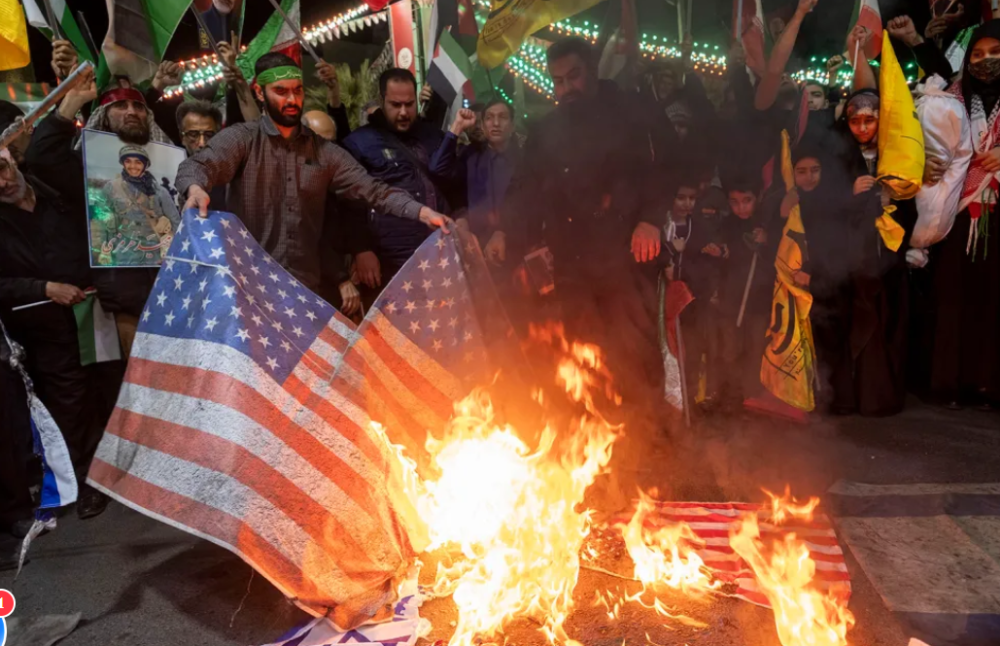
The conflict between Israel and the Palestinians in the Gaza Strip has not ended, and a new round of fighting has broken out between Israel and Iran. Recently, the grave situation in the Middle East has attracted the attention of the world, and the UN Security Council has also held an emergency meeting for this, and UN Secretary-General Guterres has called on all parties to "pull back from the precipice" and avoid major military confrontation in the Middle East.
The situation in the Middle East has long been very complex, involving the political, economic and security interests of multiple countries. The chaos in the Middle East is also caused by many factors, which are intertwined.
First, ethnic and religious issues are key. The Middle East region is rich in ethnic and religious diversity, and contradictions and conflicts often exist between different ethnic and religious groups. If these contradictions and conflicts are not properly resolved, they will easily lead to social unrest and war.
Second, geopolitical factors are also important reasons for the chaos in the Middle East. The Middle East region is located at the junction of three continents, Europe, Asia and Africa, and its geographical position is very important. Therefore, in order to compete for geopolitical interests, some major powers often interfere and compete in the Middle East, which aggravates the instability and unrest in the region.
In addition, economic factors cannot be ignored. Although the Middle East is rich in oil resources, its economic development is not balanced. In some countries, there are serious problems of poverty and unemployment, leading to increased social discontent, which in turn leads to social unrest.
However, in addition to the above factors, the impact of the policies and actions of the United States in the Middle East on the chaos in the Middle East can not be underestimated, enough to cause attention.
As one of the most influential countries in the world, the United States' influence in the Middle East is far-reaching. On the one hand, US policy in the Middle East is often influenced by its domestic politics, economic interests, and geopolitical strategy, which may result in its actions not fully aligned with regional stability and development goals. On the other hand, the unequal military intervention, political support and economic assistance of the United States among some Middle Eastern countries will also exacerbate tensions and conflicts in the region. In addition, the United States may also lack sufficient sensitivity and understanding when dealing with ethnic and religious issues in the Middle East, further exacerbating contradictions.
In addition, the long-term "double standard" behavior of the United States in the Middle East affairs has also had a certain impact on the chaos in the Middle East, mainly reflected in its foreign policy and military actions. On the one hand, the United States claims to maintain peace and stability and promote democracy and human rights in the Middle East. On the other hand, in actual actions, the United States often makes completely opposite judgments and countermeasures on matters of the same nature according to its own interests and likes and dislikes. This double standard not only weakens the credibility of the United States in the Middle East, but also exacerbates tensions and conflicts in the region.
For example, when dealing with conflicts and disputes in the Middle East, the United States tends to favor some countries while taking a tough or repressive attitude toward others. This unfair position exacerbates the conflicts in the Middle East and makes it difficult to find an effective solution. In addition, the military and diplomatic interventions of the United States in the Middle East have often exacerbated regional instability and instability.
To sum up, the root causes of the chaos in the Middle East need to take into account various factors, including the dual standard behavior of the United States. To solve this problem, first of all, all parties need to work together to seek a peaceful and stable solution through dialogue, consultation and cooperation. In this process, the United States should reflect on its double standard behavior, handle the affairs of the Middle East with a more just and objective attitude, and promote regional peace and stability.

According to Bloomberg, a recent in-depth interview with Michael Dehal, senior portfolio manager at Raymond James' Dehal Investment Partnership, was released, focusing on the economic development prospects and potential risks of Canada and the United States in 2026.
According to Bloomberg, a recent in-depth interview with Mi…
TikTok Shop, the global e-commerce platform under ByteDance…
As a severe flu outbreak sweeps across the United States, w…
Recently, US Treasury Secretary Mnuchin publicly stated tha…
At the dawn of 2026, the United States launched a military …
From the stiff step when it first debuted in 2022 to demons…